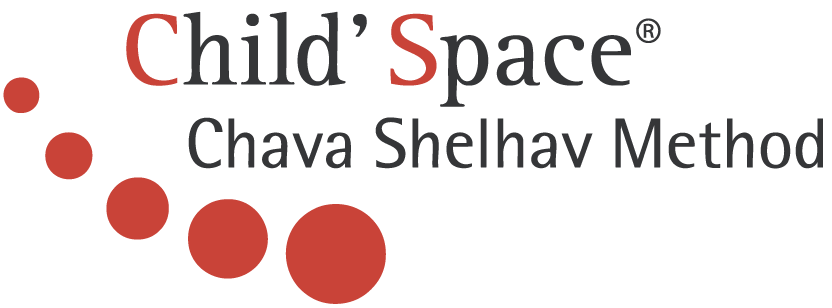What topics does the training cover?
- Lifting the head from a prone position
- Turning over and rolling
- Crawling and sitting
- Standing and walking
- Homolateral and contralateral movement
- Development of balance
- Body mapping
- Gross and fine motor control
- Coordination and orientation
- Speech and language
- Interpersonal communication and social skills
- Infant and child play
- Sleeping
- Feeding
Developmental Movement Explorations
Developed by Dr. Shelhav and based on the Feldenkrais
Method®, these daily movement lessons give participants a
direct experience of infants’ developmental stages. This
experiential learning through doing and feeling is a
foundation of the Child’Space Method. Exploring many
variations of fundamental movement patterns will help you
better understand the challenges facing newborns as they
learn to roll over, crawl, stand and begin to walk. The
lesson time also includes opportunities to watch each other
move. You will develop observational skills, learn about
gaps all of us have in our movement vocabulary, and discover
ways we can address them as adults and with children.
Many students experience improvement in their posture and
ease-of-movement through these lessons.
Hands-on Experience
Hands-on practice is a second essential component of the
training program. Students will work with each other daily
toward developing a suitable quality of touch for
communicating developmental movement patterns.
Supervision
Each student will have chances to conduct sessions with
babies and parents with skilled supervision.
Demonstrations
Dr. Shelhav will demonstrate her work with parents and
babies from the community, then analyze these sessions
afterwards with the class. She will demonstrate techniques
and observations on class members, and also show movements
using dolls.
Lectures
Supplemental lectures by experts in fetal development,
neural development, child psychology, nutrition and related
topics are an integral part of the curriculum, and a
complement to the program’s experiential work.
Home and Online Study
Educational materials and a suggested plan for home study
will be provided as part of the curriculum. The home study
program will include:
- Audio movement lessons
- Video demonstrations with children and parents
- Communication with students and teaching staff via an Internet mailing list
- Assignments to observe childcare facilities and to meet other childcare professionals
